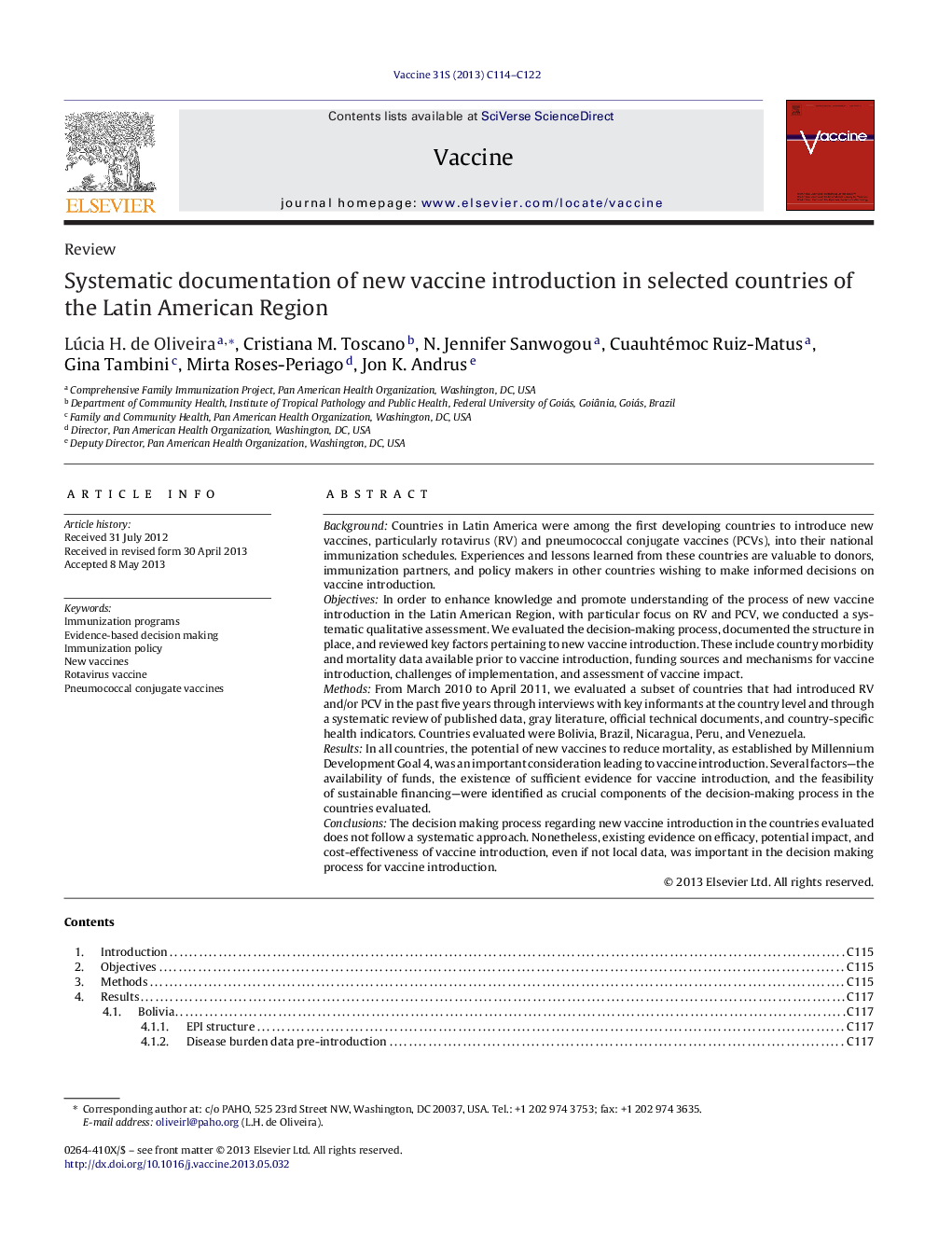| کد مقاله | کد نشریه | سال انتشار | مقاله انگلیسی | نسخه تمام متن |
|---|---|---|---|---|
| 2402551 | 1102809 | 2013 | 9 صفحه PDF | دانلود رایگان |

• This study aims at better understanding of the process of new vaccine introduction.
• Countries assessed were Bolivia, Brasil, Nicaragua, Peru, and Venezuela.
• Vaccine introduction process is generally not well-grounded in systemized approach.
• Existing body of evidence is an important factor supporting decision making process.
• The weaknesses identified in this study are being addressed by PAHO through the ProVac Initiative.
BackgroundCountries in Latin America were among the first developing countries to introduce new vaccines, particularly rotavirus (RV) and pneumococcal conjugate vaccines (PCVs), into their national immunization schedules. Experiences and lessons learned from these countries are valuable to donors, immunization partners, and policy makers in other countries wishing to make informed decisions on vaccine introduction.ObjectivesIn order to enhance knowledge and promote understanding of the process of new vaccine introduction in the Latin American Region, with particular focus on RV and PCV, we conducted a systematic qualitative assessment. We evaluated the decision-making process, documented the structure in place, and reviewed key factors pertaining to new vaccine introduction. These include country morbidity and mortality data available prior to vaccine introduction, funding sources and mechanisms for vaccine introduction, challenges of implementation, and assessment of vaccine impact.MethodsFrom March 2010 to April 2011, we evaluated a subset of countries that had introduced RV and/or PCV in the past five years through interviews with key informants at the country level and through a systematic review of published data, gray literature, official technical documents, and country-specific health indicators. Countries evaluated were Bolivia, Brazil, Nicaragua, Peru, and Venezuela.ResultsIn all countries, the potential of new vaccines to reduce mortality, as established by Millennium Development Goal 4, was an important consideration leading to vaccine introduction. Several factors—the availability of funds, the existence of sufficient evidence for vaccine introduction, and the feasibility of sustainable financing—were identified as crucial components of the decision-making process in the countries evaluated.ConclusionsThe decision making process regarding new vaccine introduction in the countries evaluated does not follow a systematic approach. Nonetheless, existing evidence on efficacy, potential impact, and cost-effectiveness of vaccine introduction, even if not local data, was important in the decision making process for vaccine introduction.
Journal: Vaccine - Volume 31, Supplement 3, 2 July 2013, Pages C114–C122